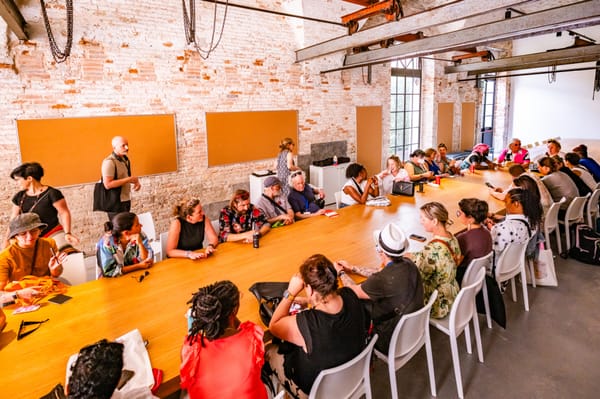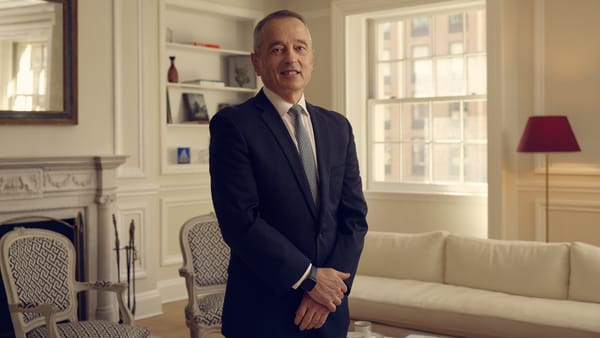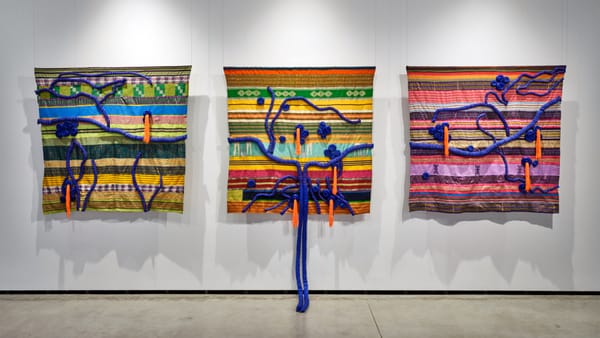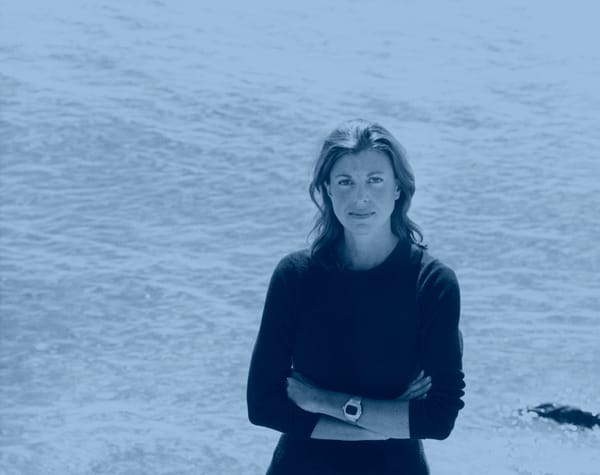Turkish Filmmaker Chains Himself to Culture Ministry to Protest Confiscation of His Archive
Oktay Ince, a longtime video activist fighting to retrieve an archive worth 20 years of his work, was held in police custody and accused of terrorist propaganda after he chained himself to a pole outside the culture ministry in Ankara.
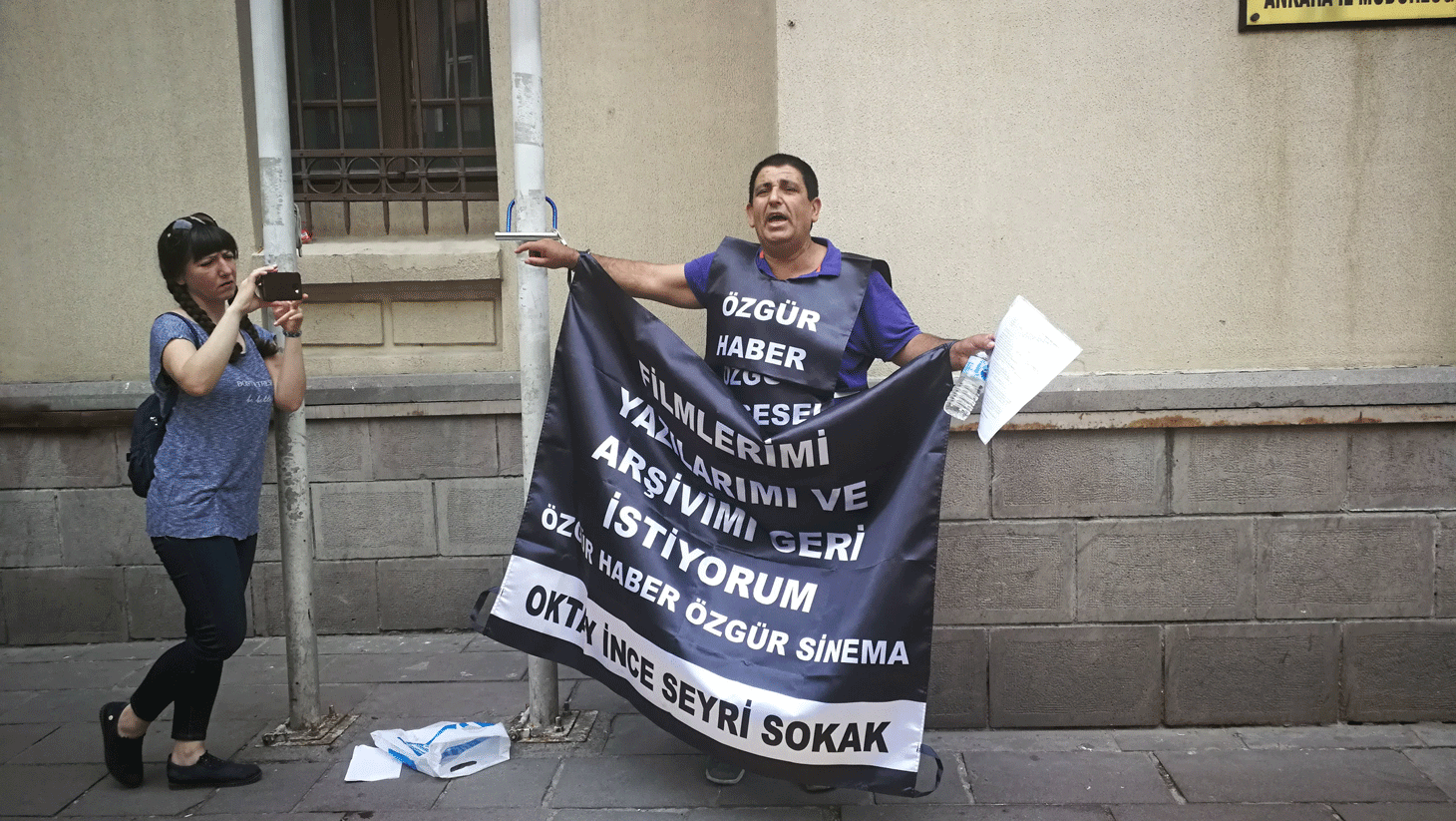
Oktay Ince, a Turkish documentary filmmaker and video activist, was taken into police custody on Thursday, May 30, after he chained himself to a pole outside the offices of the General Film Directorate at the Ministry of Culture in Ankara. Ince was protesting the confiscation of his video archive, which spans 20 years of work, by Turkish authorities. The police opened an investigation against Ince on charges of “promoting the propaganda of terrorist organizations.”
“We are all now part of a new movie being documented now,” shouted the 59-year-old filmmaker at policemen and pedestrians outside the ministry before he was unchained and dragged into a police car. Ince was wearing a vest with the words “Free Journalism” on it and tied a sign to his wrist reading, “I want my films, my writings, and my archive back. Free journalism, free cinema.”
Two days earlier, Ince attempted to protest in front of an Ankara Courthouse, but a police force in place took him into custody immediately. Last month, Ince was arrested on charges of “insulting the president” after he protested in his home-city Izmir in demand to receive his archive back.
After exhausting all his options, Ince decided on a change of tactic. “I chained my right arm to a pole in front of the building so I could buy more time to clearly express my demands before I’m taken into custody,” he told Hyperallergic in a phone conversation (translated with help from Eylul Deniz, a member of the video activism collective Seyri Sokak, of which Ince is also a member).
Arşivlerine hukuksuzca el konulan belgeselci Oktay Įnce bugün #Ankara Sinema Genel Müdürlüğü önünde kendini zincirledi! Gözaltına alındı!
–
Video-activist documentarist Oktay Įnce has chained himself before the Ankara General Cinema Directorate today! He is detained!
30.05.2019 pic.twitter.com/oMYYp0cRbB
— Seyri Sokak (@seyrisokak) May 30, 2019
Ince has a long history of run-ins with the state. He was first arrested for his activism in the wake of the 1980 coup d’état in Turkey and was sentenced to six years in prison. In the last 20 years, he was detained by the police more than 40 times while documenting various demonstrations and protests. Now, he says, he is fighting the battle of his life.
On the morning of October 16, 2018, police officers raided Ince’s home in Izmir to seize his archive as part of the latest investigation against him. That morning, Ince says, he was alone in his house with his 4-year-old daughter. Wary to expose his young daughter to a violent arrest, he did not resist. “I had to remain silent and just watch them take everything in front of my own eyes,” he said.
The police seized 20 external HDD hard discs, 41 DVDs, and 10 flash discs containing materials which date back to 1999. The digital devices contained all of Ince’s output in the last 20 years of his career: footage of the LGBTQ struggle in Turkey (including documentation of the founding of the pioneering LGBTQ group, Kaos GL); films on the Kurdish struggle for liberation; documentation of the anti-militarist movement in Turkey; footage of villagers’ struggles against landlords; a film on Kurdish paper collectors, who survive by collecting discarded paper in the streets for recycling; and most recently, his documentation of KHK resistance movement, which protested the purging of nearly 150,000 of academics and public servants under Statutory Decree No. 696 (colloquially referred to as KHK, an acronym for the decree in Turkish) following the failed coup d’état attempt in 2017. Ince also documented the 300-day hunger strike of two teachers who lost their jobs during the mass layoffs. In this case and others, activists have used Ince’s camera footage in courts to disprove false claims made against them by the police or as evidence for police brutality.
The captured archive also included master copies of Ince’s films, all of his writings including finished book drafts, raw materials for a forthcoming video project on Kurdish wedding rituals, and family videos and pictures he took in the past 20 years.
The law in Turkey allows the police to make copies of the archive, but it does not allow it to keep the originals. Ince has not yet received an answer on whether he will receive his archive back. A court case has not been opened yet, as the investigation is still in progress.
In November 2018, PEN America sent a letter to three Turkish ministers — Minister of Justice Abdülhamit Gül, Minister of Interior Suleyman Soylu, and Minister of Culture and Tourism Mehmet Nuri Ersoy — demanding the return of Ince’s archive.
In a response he released in February 2019, Minister Soylu wrote, “Struggling against all incidents of terror and violence targeting the sovereignty of the Republic of Turkey and security of our citizens in accordance with legal principles is an obligation that arises from being a state.”
“Turkey is a state of law respecting human rights,” Soylu continued. “It is the independent judicial bodies that will give a ruling in legal investigations.” Soylu also targeted PEN America saying, “Your biased request for dropping the charges against a person who is currently facing a legal investigation conflicts with the principle of rule of law, which has universal validity.”
Senem Aytac, an Istanbul-based film critic, told Hyperallergic that Ince could not have moved through proper legal channels in his struggle because “the legal system in Turkey has almost collapsed.”
“Censorship has always been an issue in Turkey, but the situation got worse during the last five years,” Aytac said. “Almost all censorship cases are presented as charges of ‘praising terrorism,’ ‘propaganda of a terrorist organization,’ or ‘insulting the President.’”
Together with her peers, Aytac has recently founded a new cinema association to protect the rights of filmmakers like Ince in Turkey. “It is very important to support Oktay Ince’s struggle and make it visible,” she said. “It is an unacceptable violation of basic human rights for any authority to confiscate collective and/or personal archive. That’s a threshold we must fight against exceeding. This is a struggle to save personal and collective memories and histories, and therefore a struggle for our lives.”
“I’m not afraid of being jailed, but I do worry that I will be sentenced to prison before I get my archive back,” Ince said, vowing to keep protesting every week to get his life’s work back. “I’m entirely focused on my basic demand: I want my archive now.”


